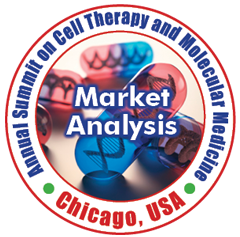
Michael J Spinella
University of Illinois at Urbana-Champaign, USA
Title: The promise of epigenetic therapy in solid tumors: DNA methylation inhibitors in testicular cancer
Biography
Biography: Michael J Spinella
Abstract
Decitabine (5-aza), a potent inhibitor of DNA methylation, is approved for the treatment of myelodysplastic syndrome (MDS) and also shows promise for the treatment of specific leukemias. However, DNA methylation inhibitors in solid tumors have been disappointing. Testicular germ cell tumors (TGCTs) are the most common carcinomas of men of age 15-35. We describe our recent findings that TGCTs are exquisitely sensitive to 5-aza and the novel 5-aza pro-drug quadecitabine (SGI-110). Currently available cisplatin-based cytotoxic therapies result in substantial acute and life-long side effects that impact quality of life. In addition, 15-20% of cases is refractory or relapses despite cisplatin therapy and is in many cases fatal. Our novel findings that extend to animal studies strongly suggest that pluripotent embryonal carcinoma (EC), the stem cells of TGCTs, are uniquely vulnerable to very low doses of 5-aza and SGI-110. The dose is 100-1000 fold lower than those needed to cause cytotoxicity in somatic cancers and normal cells. Notably, hypersensitivity to 5-aza also occurs in EC cells resistant to cisplatin. Further, low dose 5-aza can restore cisplatin sensitivity to cisplatin resistant EC cells. These findings suggest that cisplatin sensitivity of TGCTs may be related to their DNA methylation status. The hypersensitivity was also associated with high levels of the pluripotency marker, DNMT3B. Knockdown of DNMT3B results in resistance to 5-aza suggesting that 5-aza sensitivity is mechanistically linked to high levels of DNMT3B. Together, this work provided the rationale for our recently initiated and promising phase I clinical trial using SGI-110 to treat cisplatin refractory TGCT patients. We discuss our recent genome-wide molecular studies aimed to identify potential mechanism(s) to account for the hypersensitivity of TGCTs to 5-aza including promoter demethylation, p53 activation, dsRNA MDA5/MAVS/IRF7 viral mimicry and pluripotency-specific non-CpG gene body methylation. We also discuss preliminary findings from our ongoing trial.

